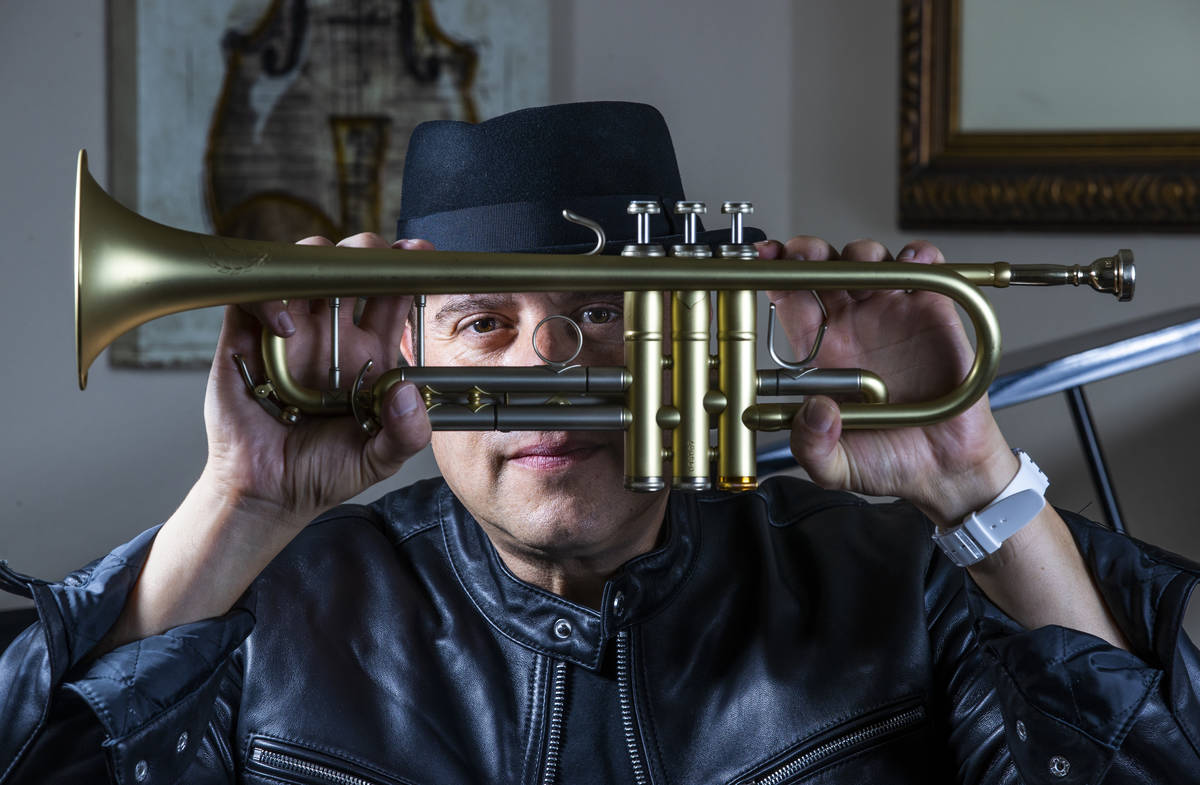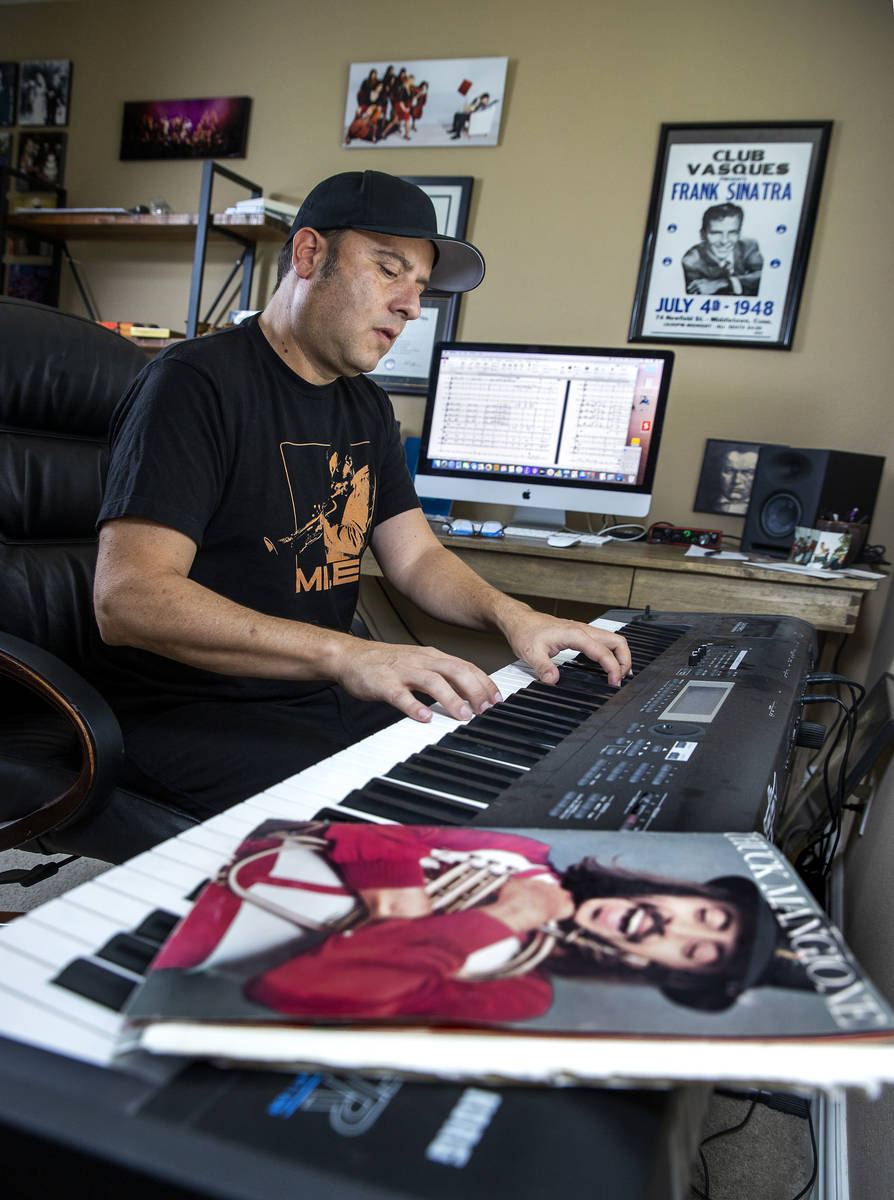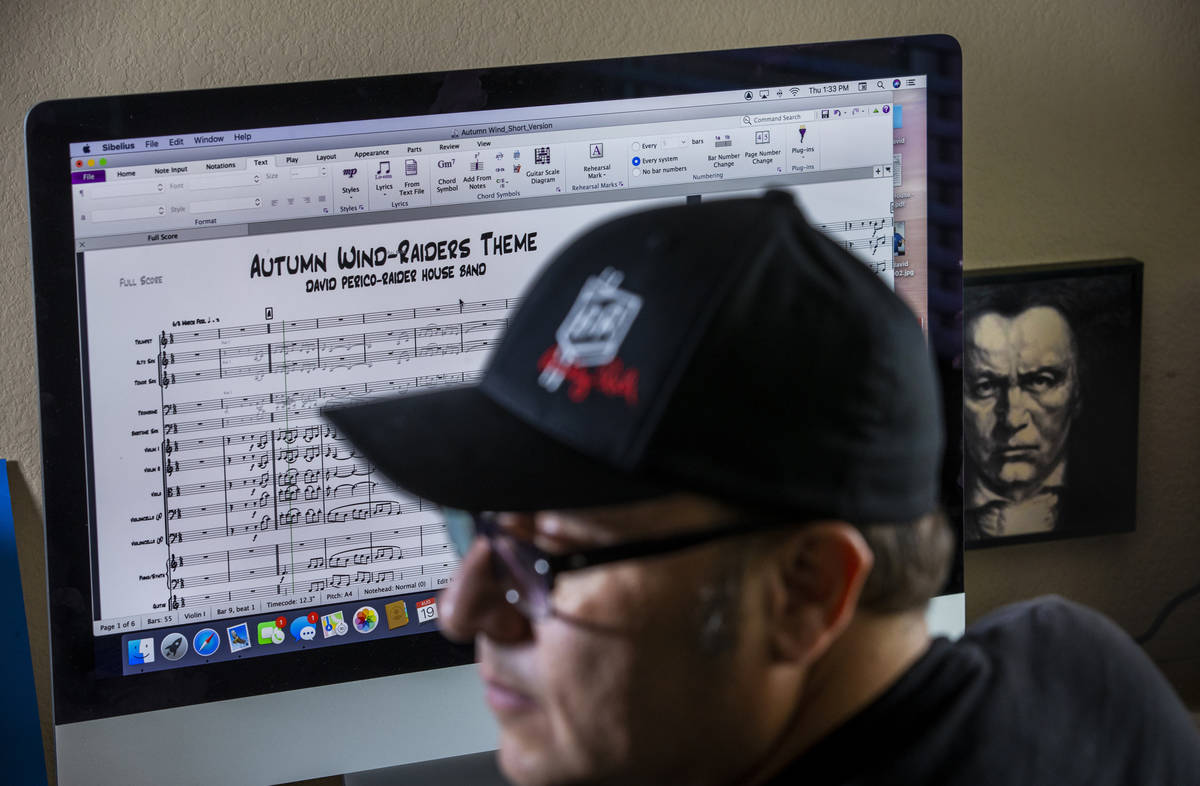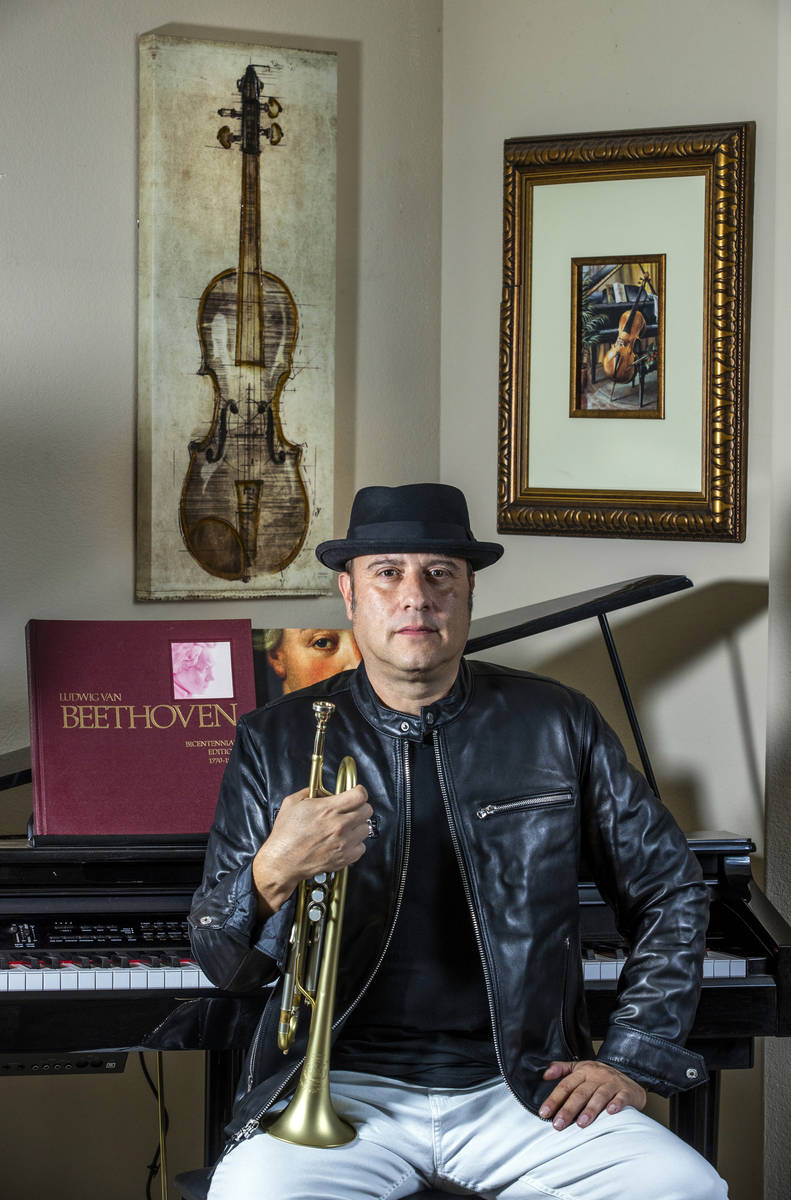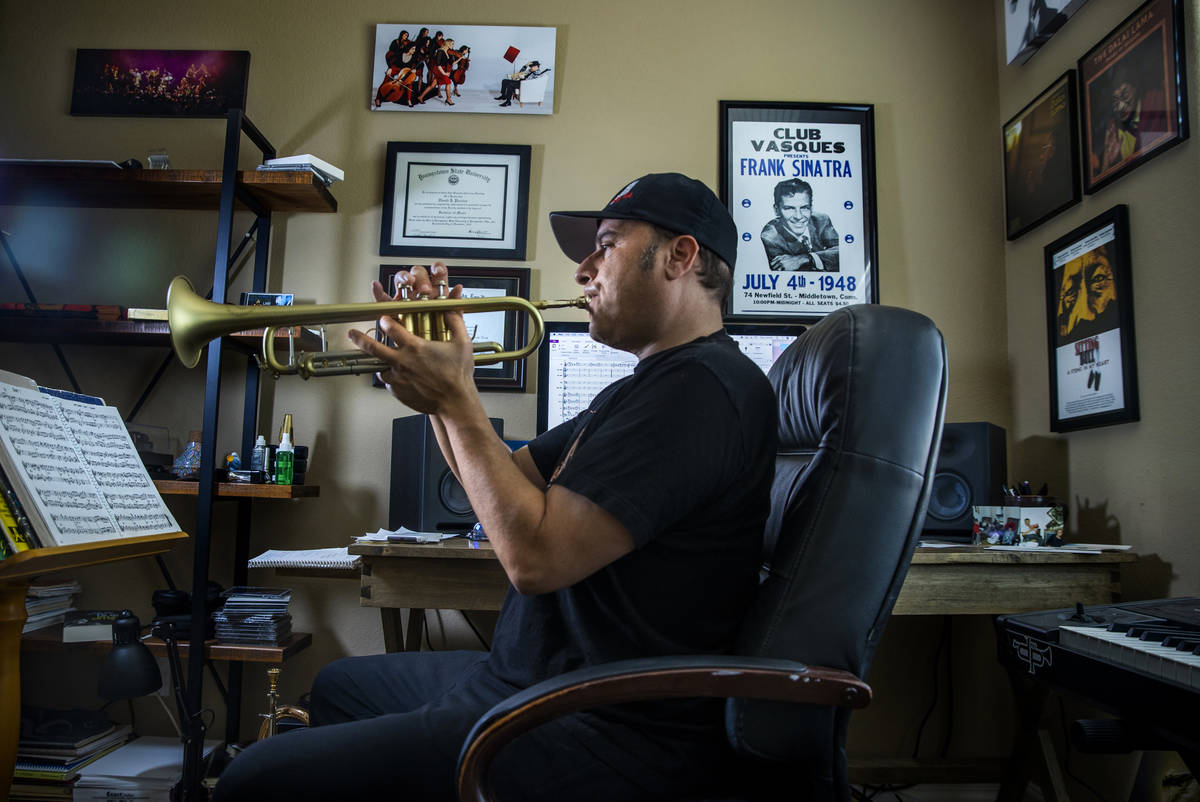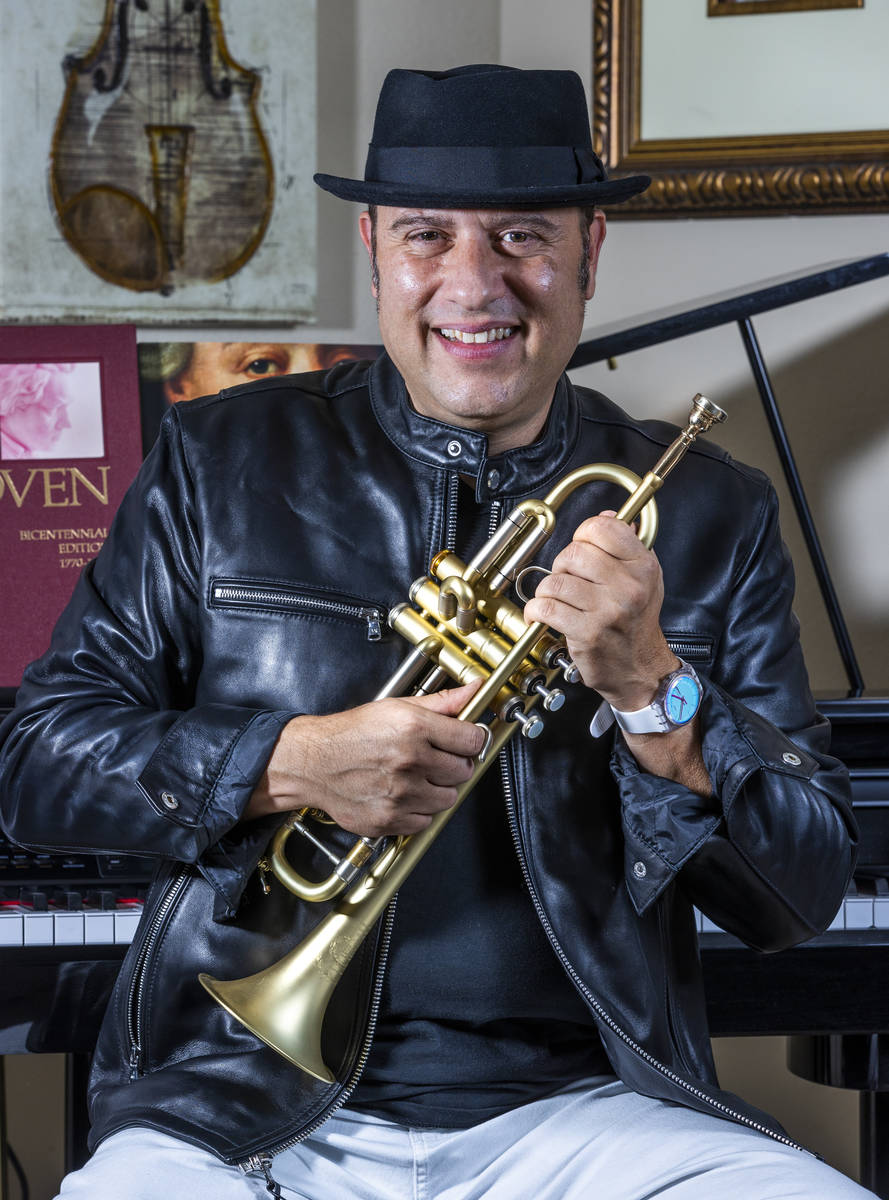Q&A with Raiders’ bandleader David Perrico
David Perrico has been a music fan since he was a kid. He’s also been a Cleveland Browns fan.
“If you’ve ever sat in the Dog Pound at old Municipal Stadium in Cleveland, before they tore it down, you know what I mean,” says Perrico, a native of Youngstown, Ohio. “The wind off the lake was coming in. It was 20 below zero with the wind-chill factor. It’s amazing.”
But serving as the bandleader for Las Vegas’ NFL team has shaken up that alliance. That wind off Lake Erie has been replaced by “Autumn Wind” at Allegiant Stadium.
“It’s our team, our game, when you are up there playing,” Perrico says. “Now I’m a Raiders fan, too.”
Perrico and his 18-piece Pop Strings ensemble have been drafted as the Raiders’ house band for the 2021 season. The team sets up under the Al Davis Memorial Torch for a 30-minute, pregame set peppered with AC/DC, Earth Wind & Fire, Pitbull, Bruno Mars and Tower of Power. The band also plays in spots throughout the game (including the theme, “Autumn Wind,” and the Star Wars’ “Imperial Death March” after Raider TDs).
Pop Strings headlined most recently for four years at Cleopatra’s Barge at Caesars Palace until Caesars Entertainment shut down the venue in May. Perrico’s band debuted at the Raiders’ preseason game against the Seattle Seahawks on Aug. 12.
The band is made up exclusively of veteran Las Vegas players, led by Perrico, who has performed in Las Vegas for the past 15 years. His popular vocalist wife, Lily Arce, is also featured on the Raiders’ stage.
Perrico recently talked of his time in Vegas, and the big break that led his group to play for 65,000 fans rather than 160 at the Barge:
Johnny Kats: What went through your head during your first performance at a Raiders game?
David Perrico: It was a feeling of, first, I was honored. I was very happy for the band, because we’ve been off for 17 months and we lost our Caesars Palace residency. The energy of the whole Raider Nation, the Raider fans, the noise and interaction of everyone crowded around the bandstand. All that partying and grooving. That was my takeaway.
And your family showed up, unexpectedly, at the game.
Yeah, I turned around and my brother (Brian) was there, and my sister-in-law (Kris), they live here. But my dad (Joe) flew in from Youngstown, and he still lives in Youngstown. My stepmother (Linda), half-sister (Amanda), half-brother (Matt) all showed up by surprise. I’ve been lucky in that sense. Wherever I played, wherever there was a concert, my family was always there.
Why did you decide to play the trumpet?
My dad’s a retired sax player, so I had a clarinet. I went to school in fourth grade with my own clarinet, and I was gonna be in a band. But the band director says, “Well, you know, we don’t have any trumpet players in the band. Why don’t you try it?” So I came home with a trumpet.
How did you get to Las Vegas?
I was offered a full scholarship in the UNLV jazz program, with (department head) Dave Loeb. I said, “OK, I’ll do my master’s degree,” and the plan was to stay here for two years and move to New York.
What happened to the plan?
Things just started lining up. I started subbing for Donny & Marie, I did a year with Cirque, “Viva Elvis” at Aria, and went on to play with Lon Bronson’s band at Ovation at Green Valley Ranch and in “The Rat Pack Is Back.” … Then we opened with the big band, Pop Evolution, at South Point in 2012.
We’ve talked a lot through the shutdown, about how this has affected musicians in your company. You told me last year that 70 percent of your business was booking bands for corporate and private events. What was it like to lose the bulk of your business?
That was really the punch in the gut. You know, in my production company, I produce 11 bands. So you’re looking at about 60-70 musicians, independent contractors, who were out of work.
How did you help sustain those musicians?
What I tried to do with some of the (Paycheck Protection Program) money, and some grants that I received, was to keep everyone working by doing some recording, doing some original music, new photo shoots or new jingle writing. Whatever I could do to keep everyone kind of going. I pay musicians for their time.
You spent a lot of time as a performer and road manager for the Tommy Dorsey Band. What was that life like, compared with being settled in Las Vegas?
When you’re on the road with a band 46 weeks a year, you learn how to keep a band together, keep the band fun. Any touring musician will tell you the work is the 22 hours between gigs. The shows are the fun. This was in the mid- to late ’90s, no cellphones. You had a phone card to call home on Sundays. You went from Florida to Missouri, Missouri to Vermont. You’d be at the Lincoln Center in New York City, and then the next gig would be a tobacco farm in Paris, Tennessee, or at the Iowa State Fair. You saw it all.
It’s like being on a team, right?
Yeah, it is like being on a baseball team or a football team. It’s very sports-oriented, in that good players want to play with other good players. The coaching is part of the environment. That’s fun, too.
John Katsilometes’ column runs daily in the A section. His “PodKats!” podcast can be found at reviewjournal.com/podcasts. Contact him at jkatsilometes@reviewjournal.com. Follow @johnnykats on Twitter, @JohnnyKats1 on Instagram.



